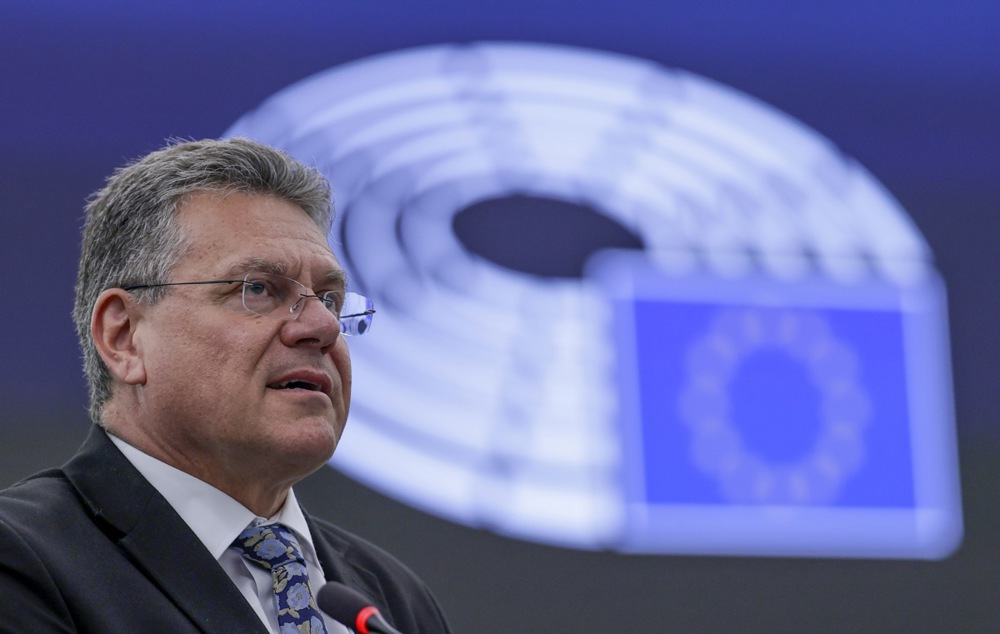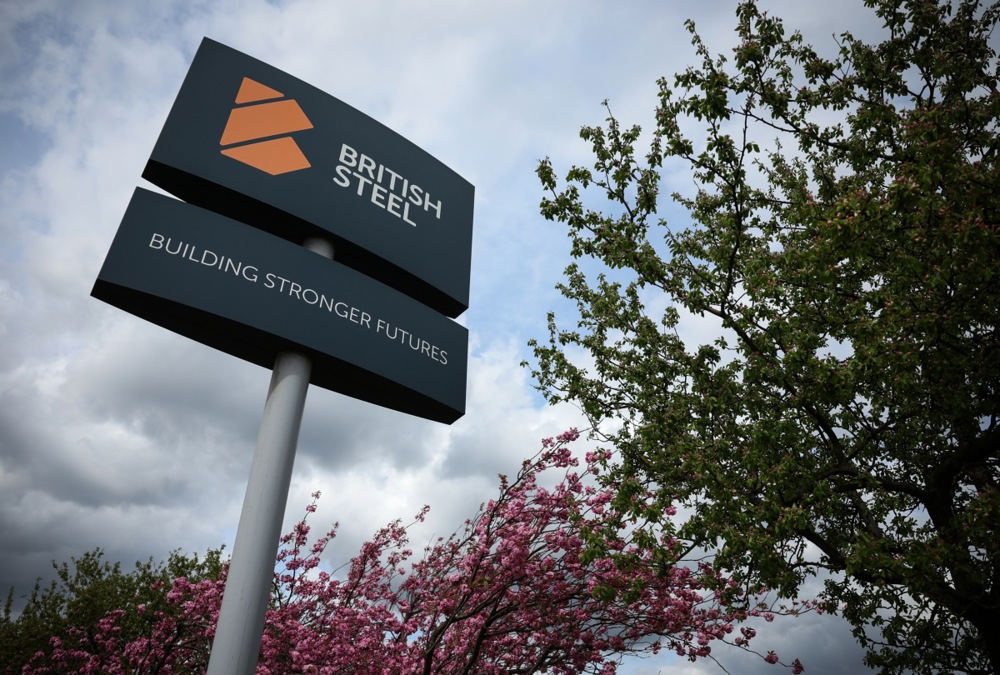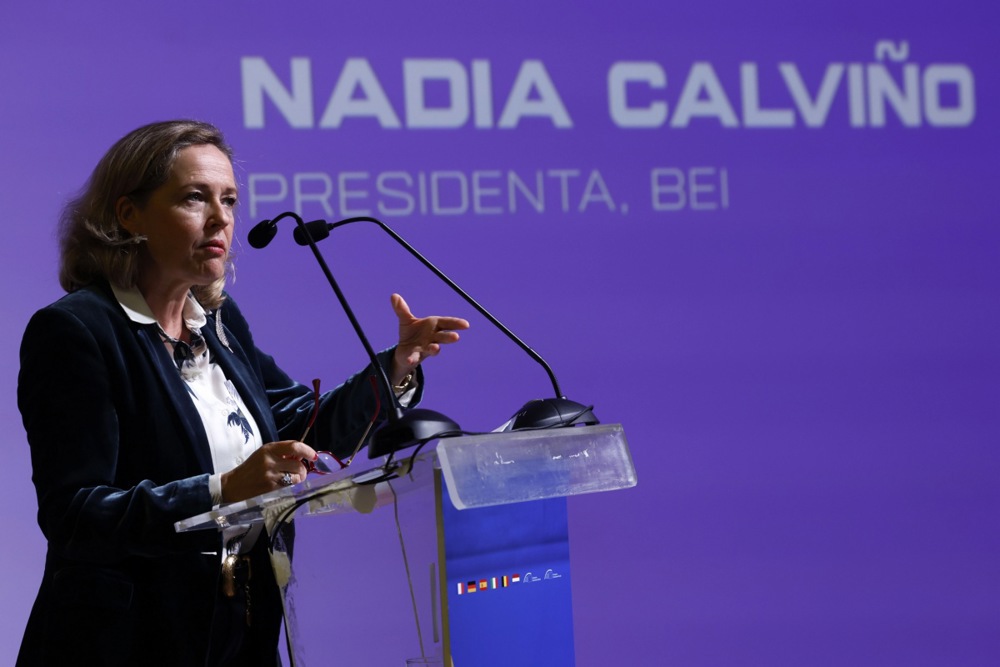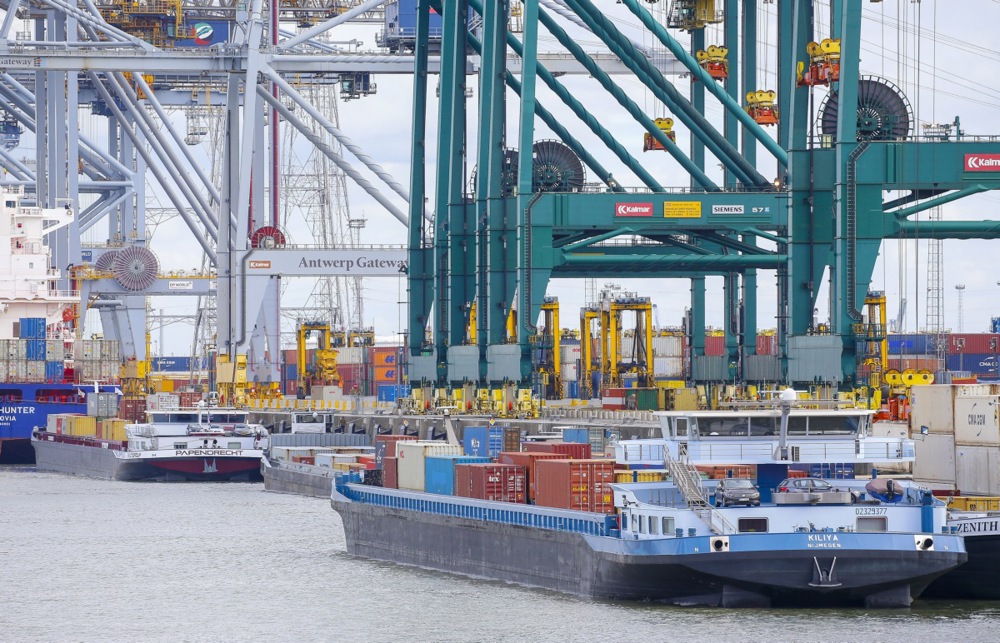Former Italian PM Enrico Letta warned Europe was not fit for the global stage, as it prepared for trade talks with Donald Trump.
Competitiveness gaps and internal fragmentation loomed larger than ever, the prominent economist told a conference in Brussels May 15.
Europe’s internal weaknesses — not just Trump’s tariffs — were what really limiting its growth, he said.
“The precondition to become more competitive is to have a common agenda,” said Letta. “We now have one — and the moment of truth will come in the next month.”
Letta’s intervention came as EU negotiators scrambled to define a common trade position before talks with Washington.
On May 15, the EU unveiled a first draft of that agenda: more regulatory cooperation on AI and digital, more joint industrial policy, and possibly a new trade arrangement with the US on critical materials and conformity standards.
The UK and China have already moved ahead with their own trade deals with the United States.
The UK deal did not remove the universal 10% tariff Trump imposed April 2 — it just replaced some of the new 25 per cent duties on cars and metals with a quota system.
“Not a full deal,” EU negotiators said, warning that if Europe got the same, it would retaliate.
Letta’s message was that the EU should not get distracted from its real problems.
Europe’s internal market still did not function for services, energy or even telecoms, he said.
“We are limiting our own growth. We have champions, but we block them at national level,” he said. “We don’t need gigantism — but we need the big to get bigger.”
“We are still in control of our telecom value chains — but what happens when everything is cloudified?”, asked Alessandro Gropelli, director general of Connect Europe, which represented European telecom companies.
“Europe must ensure operators stay in Europe — and that means investment and deregulation, not protectionism,” Gropelli said.
This dovetailed with the Commission’s new push for AI and digital cooperation with the US — which Brussels framed May 15 as “joint engagement on sensitive tech” rather than a quick-fix tariff deal.
According to Bruegel, the EU’s short-term negotiating goal was to prevent new US tariffs, while extracting regulatory concessions in strategic sectors.
Brussels was considering mutual recognition agreements on cars and pharmaceuticals, and wanted a framework for digital cooperation — provided all measures stay aligned with EU rules.
The long term objective, officials said, was a structural alignment — not a patchwork of exceptions.
The EU had prepared €95 billion in potentially retaliatory tariffs, plus €4.4 billion in export restrictions on US goods like steel scrap and chemicals.
These mechanisms would begin triggering automatically by mid-July, if no deal was reached.
The real challenge was coherence. “Competition authorities say it’s a regulatory problem, regulators say it’s for the competition people,” Gropelli said.
“But the truth is, we’ve just been too slow. We’ve seen big tech as if they were NGOs for too long,” he added.
Letta’s diagnosis was that Europe is was not uncompetitive because it lacked talent — but because it lacked capital and unity.
“We have brains. But they leave,” he said. “And if Elon Musk can say, as he did, that switching off one system would collapse a whole country in five minutes — then yes, we are vulnerable.”
That vulnerability, he argued, was the strongest reason to act. Trump’ trade policy, he said, just made it harder to ignore.
On May 14, EU Trade Commissioner Maroš Šefčovič had what he called a “constructive” call with US Commerce Secretary Howard Lutnick.
He confirmed plans to meet Trade Representative Jamieson Greer “very soon” and said both sides had agreed to “intensify technical engagement”, Reuters reported.
The EU’s position appeared to contrast with recent US deals.
On May 8, the US and UK announced a political agreement replacing some of the 25 per cent tariffs on cars and metals with tariff-rate quotas.
However, the agreement kept the 10 per cent “universal” base tariff Trump introduced April 2.
China struck a similar partial deal May 12.
Neither agreement set out clear next steps for broader negotiations, raising some doubts in Brussels whether the agreements offered a viable model for the EU.
EU officials were quick to dismiss the UK deal. “Not a full deal,” said the EC’s head for US trade relations, Matthias Jørgensen, who warned it came with “political concessions” on cars and beef.
Swedish and Finnish ministers echoed that message on May 15, at a meeting of EU trade ministers.
Sweden’s Benjamin Dousa said Brussels would respond with countermeasures, if offered similar terms.
“There’s no reason to rush,” said Poland’s Economic Development Minister Michał Baranowski, the meeting’s chair.
“We don’t need a quick deal — we need a good deal,” he said.





